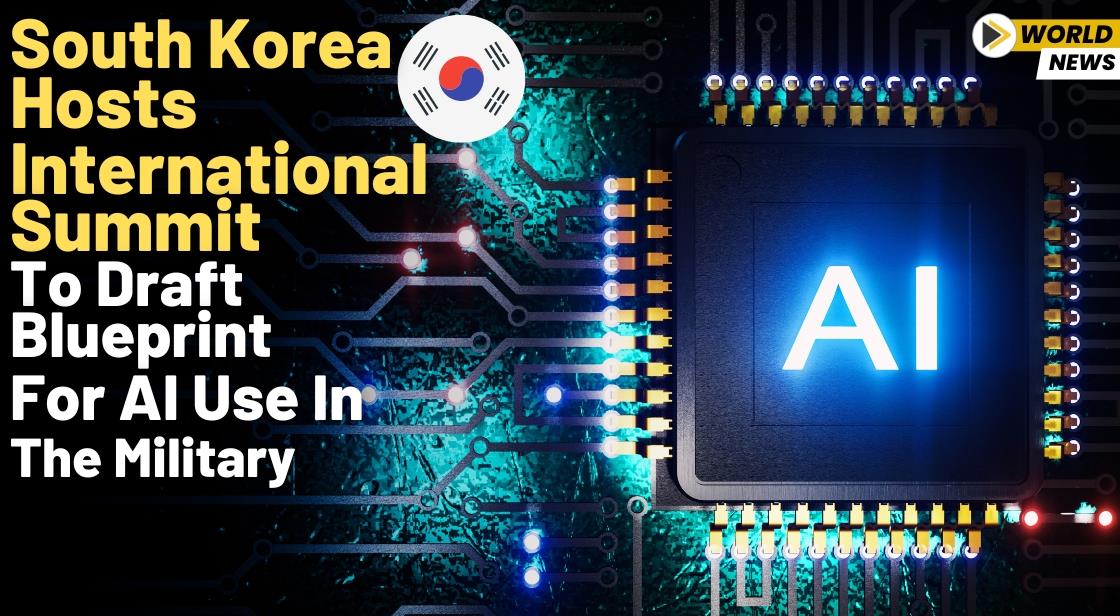South Korea Hosts International Summit to Draft Blueprint for AI Use in the Military

News Synopsis
South Korea has convened a major international summit aimed at creating a framework for the responsible and ethical use of artificial intelligence (AI) in military applications. This event, which started on Monday, brings together representatives from more than 90 nations, including leading global powers such as the United States and China.
The summit’s objective is to establish a "blueprint" for AI use in military operations, though it is unlikely that the resulting agreements will have binding legal power for enforcement.
The two-day event, held in Seoul, is the second of its kind, following last year’s summit in Amsterdam. At that inaugural meeting, several nations, including the U.S. and China, backed a moderate “call to action” regarding AI in the military, which lacked any legal commitments. This year's summit, however, seeks to push the conversation forward, offering a more detailed approach to setting boundaries on AI use in warfare.
AI’s Role in Military Conflicts: A Double-Edged Sword
In his opening remarks, South Korean Defense Minister Kim Yong-hyun highlighted the increasing role AI is playing in modern warfare. He referenced Ukraine’s use of AI-enabled drones in its defense against Russia, saying, “Recently, in the Russia-Ukraine war, an AI-applied Ukrainian drone functioned as David’s slingshot.” Kim emphasized that AI has the potential to significantly enhance military capabilities but warned of the risks, noting, “As AI is applied to the military domain, the military’s operational capabilities are dramatically improved. However, it is like a double-edged sword, as it can cause damage from abuse.”
These comments reflect a growing concern among global military leaders about the rapid advancement of AI technology and its potential misuse in conflict situations. As AI enables drones and other military equipment to act autonomously, the possibility of unintended consequences, such as civilian casualties or uncontrollable military escalation, has become a central issue in international discussions on warfare.
Legal and Ethical Safeguards on AI in the Military
South Korean Foreign Minister Cho Tae-yul stressed that the summit would focus on legal and ethical guidelines to ensure AI compliance with international law. The discussions are set to cover key topics such as the necessity of human oversight in life-and-death decisions made by autonomous weapons systems. According to a senior South Korean official, the summit aims to draft a minimum set of guidelines, drawing inspiration from principles laid out by NATO, the U.S., and other countries.
While the summit’s final document is expected to provide more detailed recommendations than last year’s Amsterdam gathering, it is uncertain how many of the attending nations will formally endorse it. The proposed blueprint is intended to set a global standard for the responsible use of AI in military operations, but it is unlikely to include legal obligations for its implementation.
Global Efforts to Regulate Military AI: A Broader Perspective
The Seoul summit is just one of several ongoing international efforts to regulate the use of AI in military operations. Nations involved in the 1983 Convention on Certain Conventional Weapons (CCW), a United Nations-backed initiative, are already engaged in discussions about restricting lethal autonomous weapons systems to ensure compliance with international humanitarian law.
In addition, the United States government has taken steps to promote responsible military AI use, launching a declaration last year that outlines ethical AI practices in military applications beyond weapons systems. As of August, 55 countries have endorsed this U.S. declaration.
Co-hosted by the Netherlands, Singapore, Kenya, and the United Kingdom, the Seoul summit aims to encourage a continuous dialogue among governments, the private sector, and academia. Around 2,000 participants from international organizations, universities, and tech companies have registered for the event. Topics under discussion include civilian protection, the use of AI in nuclear weapons control, and ensuring multi-stakeholder involvement in an arena largely driven by private sector innovation.
The Future of AI in Military Operations
With AI rapidly becoming a critical component of modern warfare, the need for ethical frameworks and international agreements has never been greater. As the summit concludes, it remains to be seen how much consensus will be achieved on regulating the use of AI in the military and whether participating nations will voluntarily adhere to the proposed guidelines.
While the blueprint emerging from the Seoul summit may not have binding powers, it marks an important step in shaping the global conversation on AI’s role in military operations, ensuring that as technology evolves, so too do the safeguards against its misuse.









